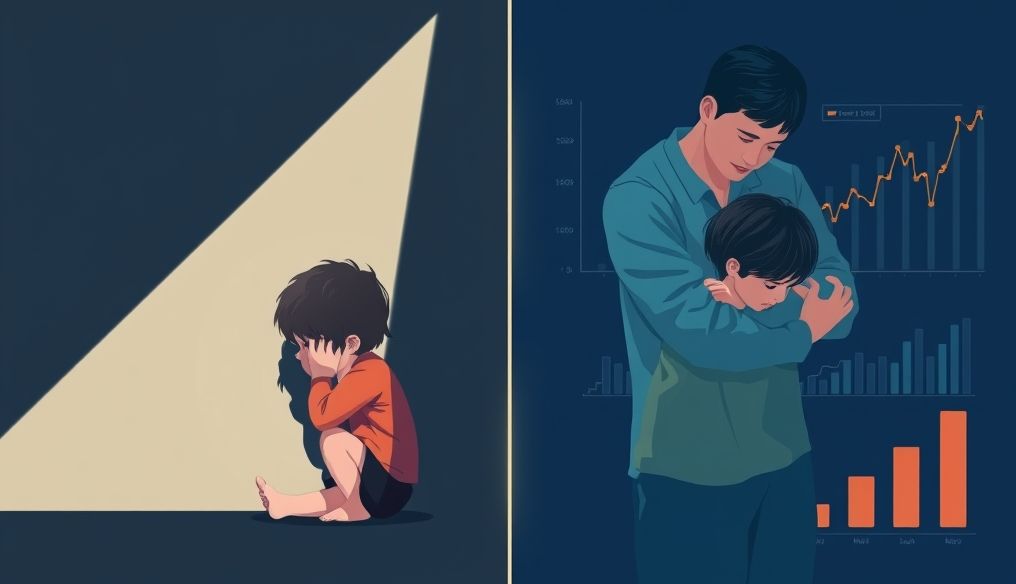Does Corporal Punishment Raise Well-Adjusted Generations or Create Disturbed Individuals?
Corporal punishment has long been a contentious topic in education. Between supporters and opponents, opinions clash on its effectiveness and impact on children. Is it an effective way to correct behavior, or does it leave devastating psychological and physical scars? This article seeks to explore this topic from multiple angles, based on scientific studies and research, and analyzing different viewpoints.
What is Corporal Punishment?
Corporal punishment is the use of physical force to cause pain or discomfort to a child in order to modify their behavior. This includes hitting, slapping, kicking, pinching, or any other form of physical violence. Corporal punishment is often practiced with the intention of disciplining the child and teaching them right from wrong, but is this method truly effective?
History of Corporal Punishment in Education
Corporal punishment has a long history in education across various cultures and civilizations. In the past, it was considered an acceptable and necessary means of teaching and disciplining children. However, the view of corporal punishment began to change gradually with the development of educational psychology and the emergence of more humane educational theories that focus on children's rights.
Arguments in Favor of Corporal Punishment
Some parents and educators still support the use of corporal punishment, based on different arguments:
- Immediate Deterrent: They believe that corporal punishment provides an immediate deterrent to unwanted behaviors.
- Cultural Tradition: They consider it part of inherited cultural and family traditions.
- Apparent Effectiveness: They may see that corporal punishment leads to the child stopping the wrong behavior in the immediate moment.
- Lack of Alternatives: They believe they do not know other ways to discipline the child.
Arguments Against Corporal Punishment
Arguments against corporal punishment are based on strong scientific evidence and consider it harmful to the child's mental and physical health:
- Negative Psychological Effects: It causes anxiety, fear, depression, and low self-esteem.
- Deterioration of the Parent-Child Relationship: It creates an environment of distrust and fear.
- Increased Aggression: The child may learn violence as a means of solving problems.
- Ineffectiveness in the Long Term: The child often returns to the wrong behavior after a short period.
- Violation of Children's Rights: Corporal punishment is considered a violation of children's rights to protection from violence.
Scientific Studies on the Impact of Corporal Punishment
Many scientific studies have shown that corporal punishment has negative effects on children:
- A study published in the journal Pediatrics found that children who are regularly subjected to corporal punishment are more likely to develop behavioral and emotional problems.
- Another study published in the journal Child Development showed that corporal punishment is associated with lower academic performance.
- A study by the World Health Organization (WHO) concluded that corporal punishment increases the risk of children being exposed to violence in the future.
Alternatives to Corporal Punishment in Education
There are many effective alternatives to corporal punishment that parents and educators can use to correct children's behavior:
- Effective Communication: Listening to the child and understanding their point of view.
- Setting Clear Boundaries and Rules: Defining acceptable and unacceptable behaviors.
- Reward and Encouragement: Reinforcing positive behaviors.
- Privilege Deprivation: Temporarily withdrawing privileges when a wrong behavior is committed.
- Time-out: Giving the child a chance to relax and think about their behavior.
- Positive Modeling: Parents being good role models for the child.
- Seeking Professional Help: Consulting a psychologist or educational specialist if there are complex behavioral problems.
Corporal Punishment and Laws
In many countries, corporal punishment is illegal, whether at home or in schools. These laws aim to protect children from violence and ensure their rights to grow up in a safe and supportive environment. Parents and educators should be aware of local laws regarding corporal punishment and comply with them.
Conclusion
Given the strong scientific evidence indicating the negative effects of corporal punishment, it is clear that it is not an effective means of education. On the contrary, it can cause long-term psychological and physical harm. It is essential that parents and educators adopt positive and non-violent educational methods that focus on communication, understanding, mutual respect, and reinforcing positive behaviors.




